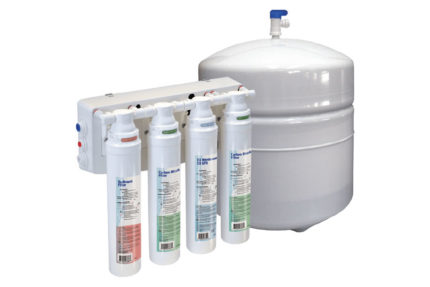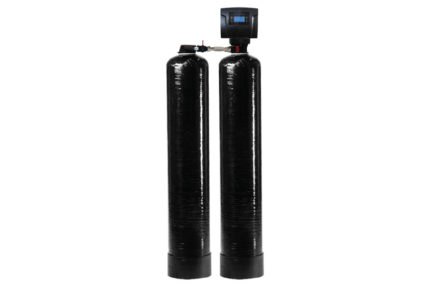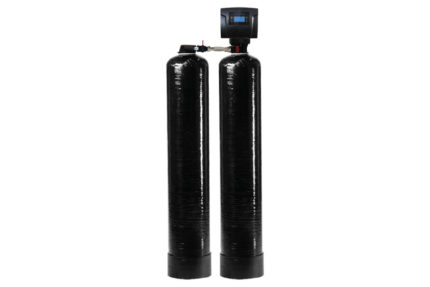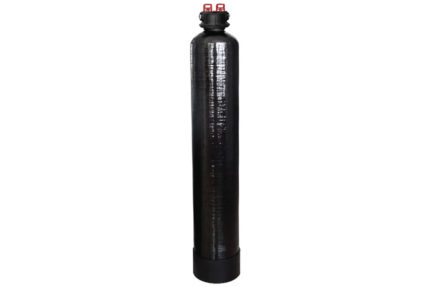Hard water is water that has high mineral content (in contrast with “soft water”). When water combines with Carbon Dioxide it forms a very weak “carbonic” acid, then as this water moves through soil and rock, the acidic nature dissolves some of the minerals and holds them in the water. The most common minerals, calcium and magnesium, are beneficial to our health, but they also cause scale build-up.
Hard water problems are very common in most of Texas, but some are more extreme than others. In your city or even your neighborhood, the water hardness will vary because of the different sources for city water or depth of a well.
The degree of hardness increases with more measured dissolved calcium and magnesium. How this is measured can be in multiple formats (see the chart below). For example on Canyon Lake’s Water Quality Report the total hardness is measured in parts per million (ppm) which show amount detected to be 333 ppm. If you look on the chart below, anything over 181 ppm is considered VERY Hard. That same report also states the acceptable hardness range allowed is 187–333 ppm which means that entire range is above the VERY Hard level.
As there are other minerals (iron, manganese) and the level of the pH in water, also contributes to (compensated) hardness, in local tests, we find that our local Municipal’s test between 25-35 grains per gallon (gpg) or 428 – 599 ppm. This is higher than they report, because they are only reporting on calcium and magnesium – your plumbing feels compensated hardness!
While most contaminants are reported in ppm, Hardness is usually reported in gpg (grains per gallon). Sometimes water companies like to get a little tricky in their reporting. Below is a chart to help you do the math.
| Classification | Hardness in mg-CaCO3/L | Hardness in mmol/L | Hardness in dGH/°dH | Hardness in gpg | Hardness in ppm |
|---|---|---|---|---|---|
| Classification:Soft | Hardness in mg-CaCO3/L:0–60 | Hardness in mmol/L:0–0.60 | Hardness in dGH/°dH:0–3.37 | Hardness in gpg:0–3.50 | Hardness in ppm:0–60 |
| Classification:Moderately hard | Hardness in mg-CaCO3/L:61–120 | Hardness in mmol/L:0.61–1.20 | Hardness in dGH/°dH:3.38–6.74 | Hardness in gpg:3.56–7.01 | Hardness in ppm:61–120 |
| Classification:Hard | Hardness in mg-CaCO3/L:121–180 | Hardness in mmol/L:1.21–1.80 | Hardness in dGH/°dH:6.75–10.11 | Hardness in gpg:7.06–10.51 | Hardness in ppm:121–180 |
| Classification:Very hard | Hardness in mg-CaCO3/L:≥ 181 | Hardness in mmol/L:≥ 1.81 | Hardness in dGH/°dH:≥ 10.12 | Hardness in gpg:≥ 10.57 | Hardness in ppm:≥ 181 |







